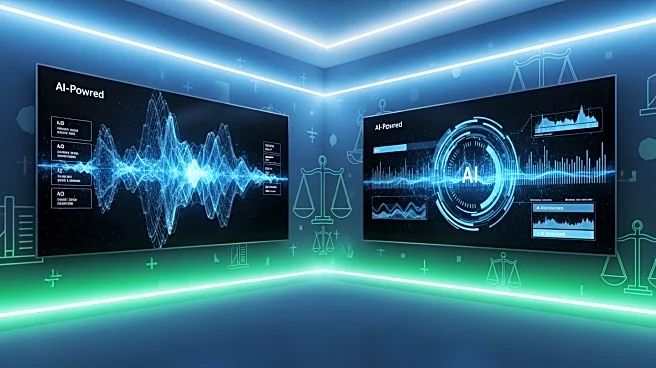What's Happening?
Law firms are increasingly adopting AI-powered collaboration tools to meet evolving client expectations and improve operational efficiency. A recent webcast highlighted the challenges faced by legal teams when their systems are fragmented, leading to inefficiencies
and security risks. The session, sponsored by Harvey's legal experts, focused on how AI can create a new model for collaboration within the legal ecosystem. Key topics included making AI innovation tangible for clients, deepening client relationships by integrating expertise into their workflows, and scaling firm expertise without compromising quality or security. The discussion emphasized the importance of secure collaboration across organizational boundaries while maintaining control and compliance.
Why It's Important?
The integration of AI in legal practices is significant as it addresses the growing demand for efficient and secure client services. By leveraging AI, law firms can enhance their client relationships and operational capabilities, potentially leading to increased client satisfaction and business growth. This shift is crucial in a competitive legal market where firms must differentiate themselves by offering innovative solutions. The ability to scale expertise without additional headcount also presents a cost-effective strategy for firms looking to expand their client base and service offerings. As AI continues to evolve, its role in transforming legal operations and client interactions is likely to become more pronounced.
What's Next?
As law firms continue to adopt AI-powered tools, the focus will likely shift towards refining these technologies to better meet client needs and enhance security measures. Firms may invest in training their staff to effectively utilize AI systems, ensuring that the technology is integrated seamlessly into daily operations. Additionally, there may be increased collaboration between law firms and technology providers to develop customized solutions that address specific legal challenges. The ongoing evolution of AI in the legal sector could lead to new industry standards and best practices, influencing how legal services are delivered in the future.
Beyond the Headlines
The adoption of AI in legal practices raises ethical and legal considerations, particularly concerning data privacy and security. As firms navigate these challenges, they must ensure compliance with regulations and maintain client trust. The shift towards AI-driven collaboration also reflects broader trends in digital transformation across industries, highlighting the need for continuous innovation and adaptation. Long-term, this development could lead to a redefinition of traditional legal roles and processes, as technology becomes an integral part of legal service delivery.
















